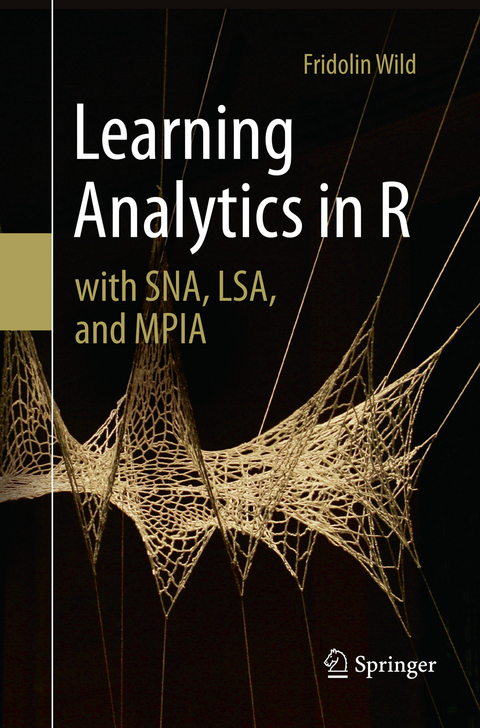
Learning Analytics in R with SNA, LSA, and MPIA
Springer International Publishing (Verlag)
978-3-319-80425-5 (ISBN)
This book introduces Meaningful Purposive Interaction Analysis (MPIA) theory, which combines social network analysis (SNA) with latent semantic analysis (LSA) to help create and analyse a meaningful learning landscape from the digital traces left by a learning community in the co-construction of knowledge.
The hybrid algorithm is implemented in the statistical programming language and environment R, introducing packages which capture - through matrix algebra - elements of learners' work with more knowledgeable others and resourceful content artefacts. The book provides comprehensive package-by-package application examples, and code samples that guide the reader through the MPIA model to show how the MPIA landscape can be constructed and the learner's journey mapped and analysed. This building block application will allow the reader to progress to using and building analytics to guide students and support decision-making in learning.
Dr Fridolin Wild is a Senior Research Fellow, leading the Performance Augmentation Lab (PAL) of Oxford Brookes University. With the research and development of the lab, Fridolin seeks to close the dissociative gap between abstract knowledge and its practical application, researching radically new forms of linking directly from knowing something ‘in principle’ to applying that knowledge ‘in practice’ and speeding its refinement and integration into polished performance. Fridolin is leading numerous EU, European Space Agency, and nationally funded research projects, including WEKIT, TCBL, ARPASS, Tellme, TELmap, cRunch, Stellar, Role, LTfLL, iCamp, and Prolearn. Fridolin is the voted treasurer of the European Association of Technology Enhanced Learning (EATEL) and leads its Special Interest Group on Wearable-Enhanced Learning (SIG WELL). He chairs the working group on Augmented Reality Learning Experience Models (ARLEM) of the IEEE Standards Association as well as the Natural Language Processing task view of the Comprehensive R Archive Network (CRAN). Fridolin also holds the post as Research Fellow of the Open University of the UK. Before, Fridolin worked as a researcher at the Vienna University of Economics and Business in Austria from 2004 to 2009. He studied at the University of Regensburg, Germany, with extra-murals at the Ludwig Maximilian University of Munich and the University of Hildesheim.
Preface.- 1.Introduction.- 2.Learning Theory and Algorithmic Quality Characteristics.- 3.Representing and Analysing Purposiveness with SNA.- 4.Representing and Analysing Meaning with LSA.- 5.Meaningful, Purposive Interaction Analysis.- 6.Visual Analytics Using Vector Maps as Projection Surfaces.- 7.Calibrating for Specific Domains.- 8.Implementation: The MPIA Package.- 9.MPIA in Action: Example Learning Analytics.- 10.Evaluation.- 11.Conclusion and Outlook.- Annex A: Classes and Methods of the MPIA Package.
| Erscheinungsdatum | 20.07.2018 |
|---|---|
| Zusatzinfo | XV, 275 p. 106 illus., 59 illus. in color. |
| Verlagsort | Cham |
| Sprache | englisch |
| Maße | 155 x 235 mm |
| Gewicht | 4511 g |
| Themenwelt | Geisteswissenschaften ► Sprach- / Literaturwissenschaft ► Sprachwissenschaft |
| Informatik ► Datenbanken ► Data Warehouse / Data Mining | |
| Mathematik / Informatik ► Mathematik ► Angewandte Mathematik | |
| Schlagworte | latent semantic analysis • learning • Learning Analytics • linear algebra • social network analysis |
| ISBN-10 | 3-319-80425-1 / 3319804251 |
| ISBN-13 | 978-3-319-80425-5 / 9783319804255 |
| Zustand | Neuware |
| Haben Sie eine Frage zum Produkt? |
aus dem Bereich


